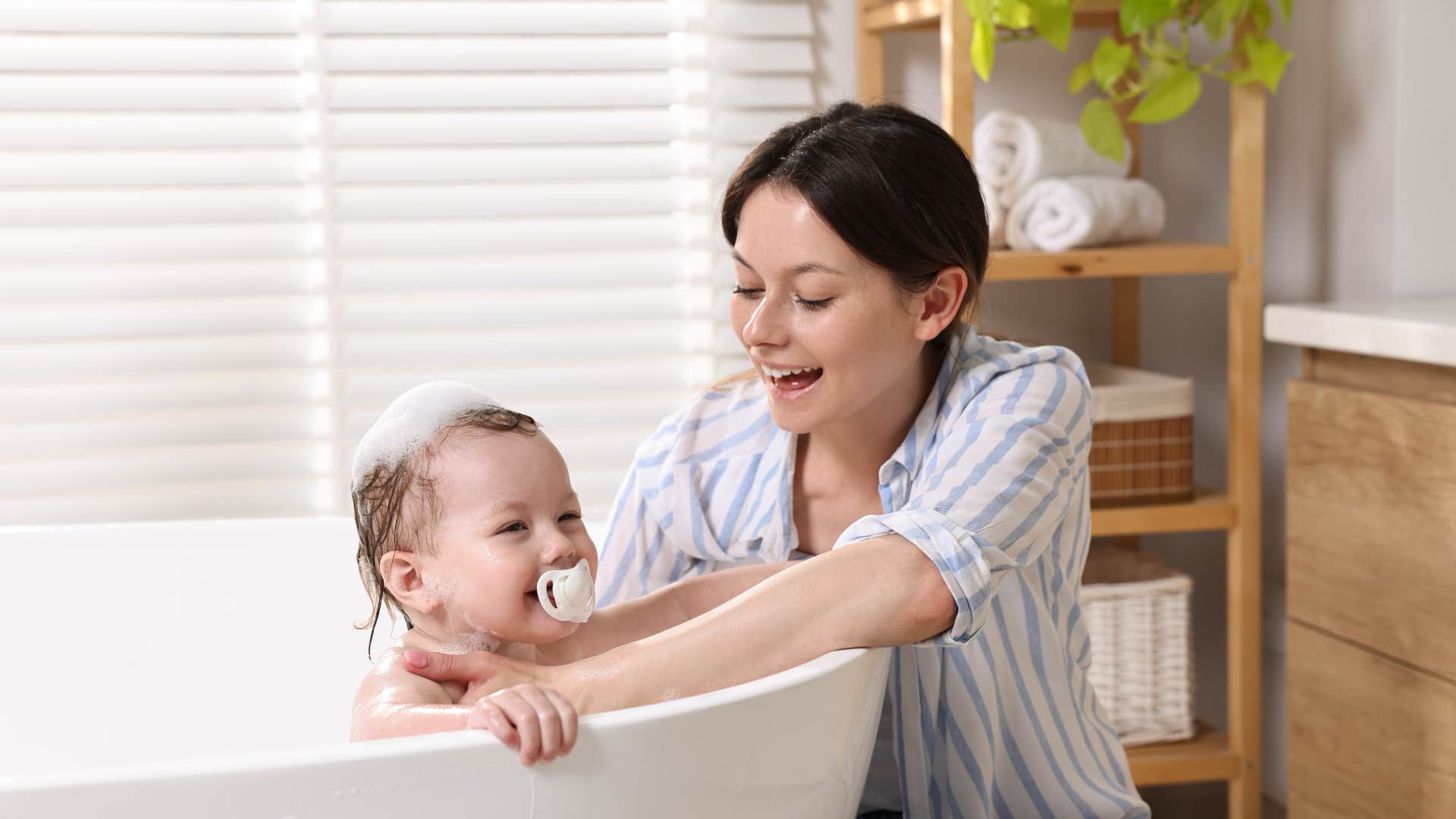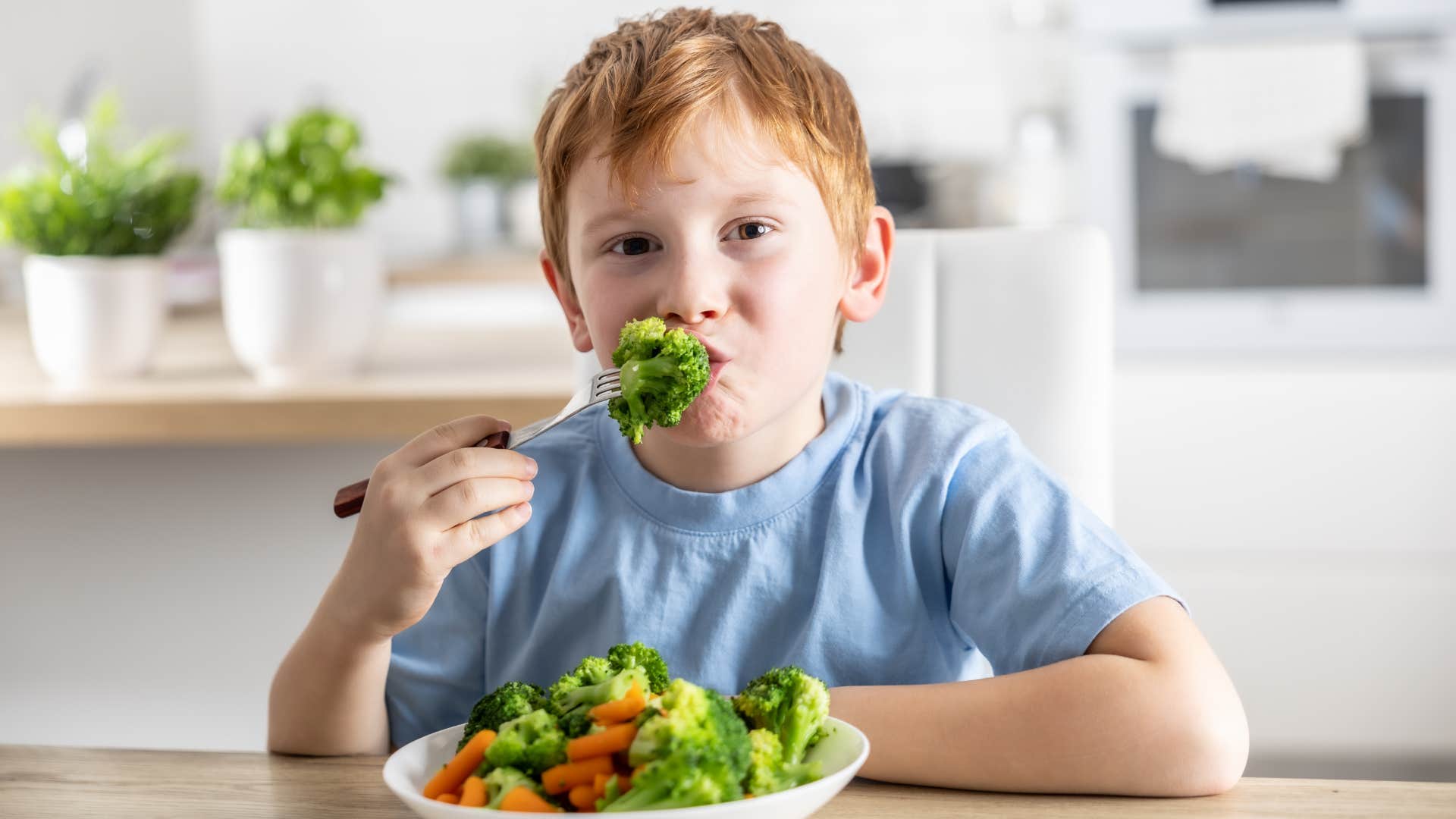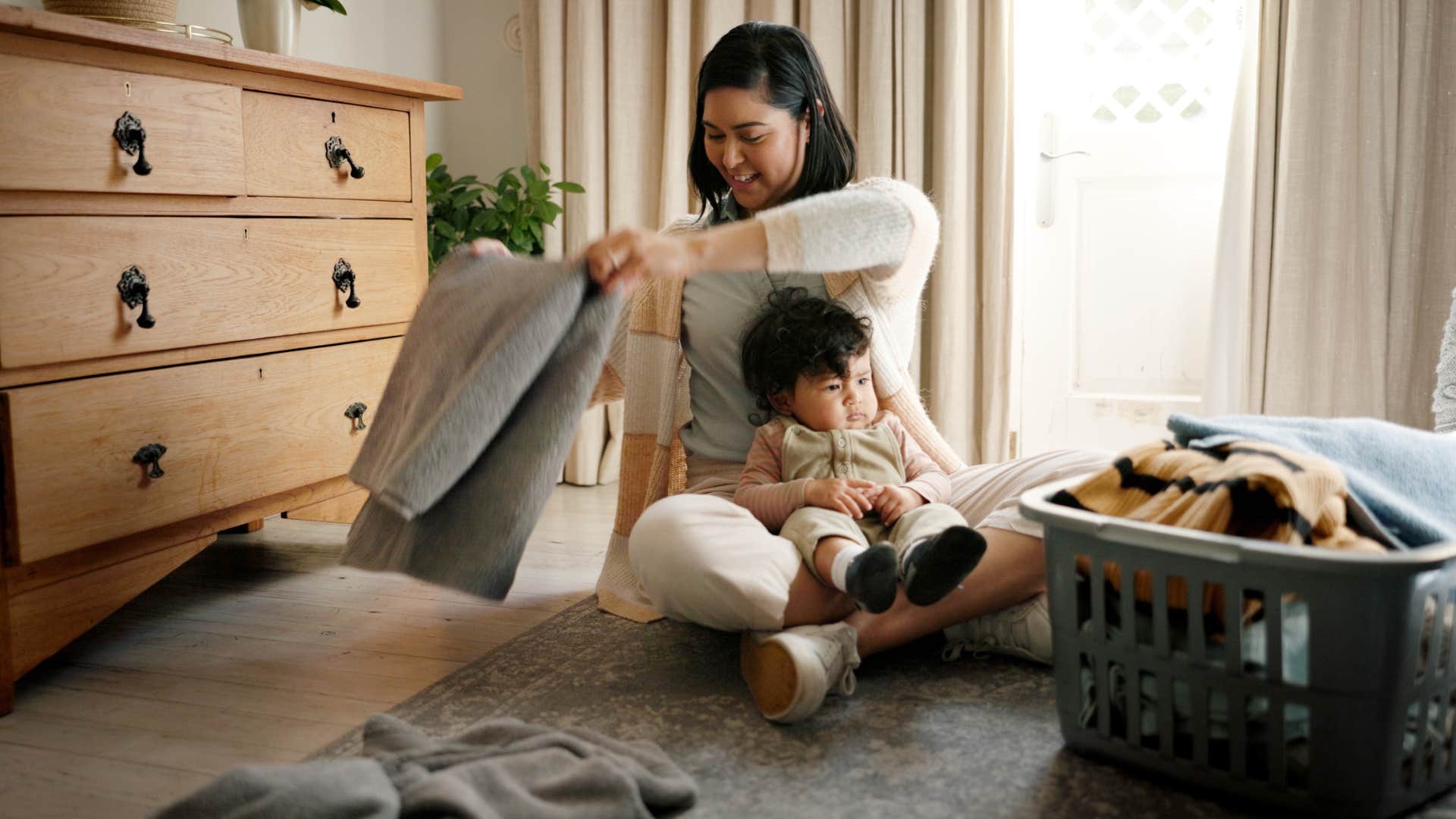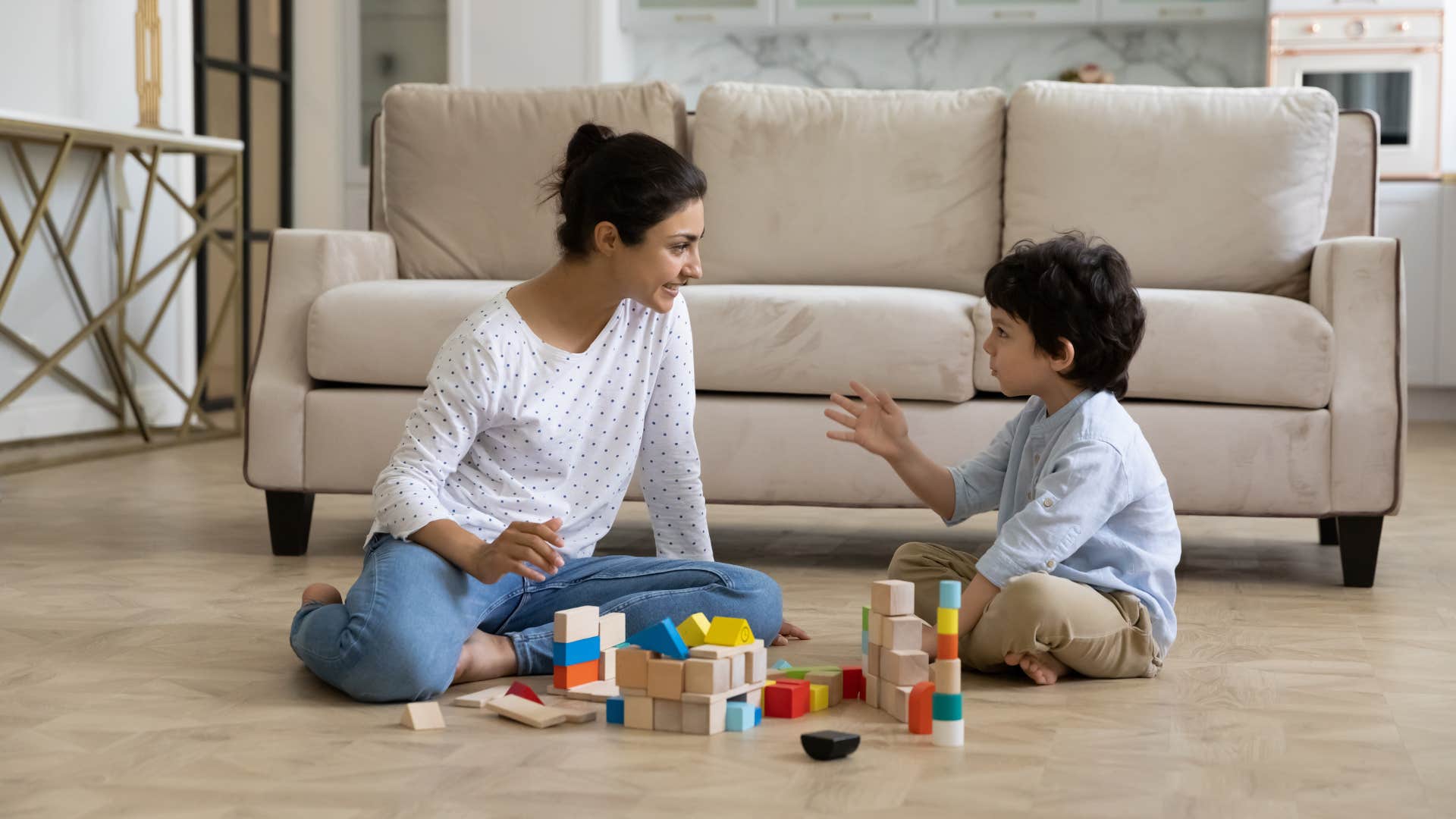7 Silly Things I Thought Made Me A Really Good Mom (Until I Realized They Didn’t)
Well-meaning habits that made motherhood harder instead of happier.
 gchutka | Canva
gchutka | Canva There's something beautifully liberating about looking back at your earlier parenting self and laughing with the gentle compassion you'd offer a dear friend who was trying their absolute best. So many of the things we stress about, agonize over, and wear ourselves out trying to achieve have surprisingly little to do with actually raising happy, healthy kids.
The truth is, good parenting often looks nothing like what we imagine it should. It's messier, simpler, and far more forgiving than the elaborate productions we sometimes create in our heads. And while you'll never regret caring deeply about being a good mom, there's incredible freedom in letting go of these self-imposed pressures and focusing on what actually matters.
Here are 7 silly things I thought made me a good mom, until I realized they didn’t:
1. Bathing the kids every day
 New Africa / Shutterstock
New Africa / Shutterstock
Children, unless they've been rolling in the mud, do not need a bath every day. In the summer I rinse off sand, sweat, and sunscreen pretty much daily, but in the winter it just makes their skin dry and rashy.
Twice-a-week baths are fine and save me the soggy wrestling match that is washing a screaming toddler and preschooler. Unless your kids have genuinely gotten filthy or it's been a particularly sweaty day, they're probably fine.
That spot of yogurt on their cheek can be handled with a washcloth. And that faint playground smell? It's not hurting anyone. Pediatricians will tell you that over-bathing can actually strip natural oils from delicate skin, leading to eczema flare-ups and uncomfortable dryness that requires even more intervention.
2. Doing an elaborate bedtime routine
 Kitreel / Shutterstock
Kitreel / Shutterstock
Literally, everyone told us we needed to do a bedtime routine. Bath, infant massage, dim lights while nursing — this was bad enough and clocked in at about an hour.
Now, with our 4-year-old, more rituals have crept in, like: 1) sing a song; 2) read three books; 3) listen to Freight Train Boogie; 4) dance; 5) play a game he and daddy made up, called "crashies," in which I always get injured; 6) a good-night "wrestle" with his brother; 7) tooth-brushing; 8) a game called "burrito" in which he is rolled in a blanket, then unrolled like Cleopatra at Caesar's feet; 9) prayers; 10) a dozen good-night hugs and kisses in a specific order and if we mess up we have to start over; 11) one more drink of water; 12) one more pee; 13) one more drink of water.
The bedtime routine starts at 3:45. In the interest of recapturing those hours, I'm eliminating all but tooth-brushing and prayers, which, mumbled at high speed while inching towards the cocktail cabinet, are more true to my Episcopalian faith anyway.
3. Buying organic
 ORION PRODUCTION / Shutterstock
ORION PRODUCTION / Shutterstock
I've spent the last five years standing in the fruit aisle debating whether to spend $2 for an organic apple or 50 cents for a regular one, and then, confused, I buy no apple at all. I am just not going to worry about it anymore. It's better that they eat fruits and vegetables than not, and we can’t spend $200 a week on apples.
The truth is, washing your produce thoroughly and focusing on getting those fruits and vegetables into your kids' bodies is what counts. An article by UC Davis explained that your children need the nutrients, fiber, and healthy eating habits that come from regularly consuming produce.
4. Forcing my kids to eat vegetables
 Marian Weyo / Shutterstock
Marian Weyo / Shutterstock
With my first child, we forced him to eat a certain number of bites of his dinner to get dessert. This resulted in bargains and negotiations and debates over exactly how much food on the fork counted as a "bite." (It was a little like arguing how many angels can fit on the head of a pin.)
By the time my second arrived, we started following Ellyn Satter's division of responsibility, which makes meals a lot more peaceful. I mean, mostly. My son sat down at the table the other night, looked at what I'd made, and said, "This looks like an old head." So yeah, it's not all wine and roses, but at least I’m not squabbling about whatever counts as a bite.
5. Being eternally patient
 Studio Romantic / Shutterstock
Studio Romantic / Shutterstock
I try so, so hard to control my temper. But sometimes, one child is repeatedly pressing the "Oh Susannah" button on his music machine, the phone is ringing, and I can't find it, the oatmeal is burning, and the other child is experimenting with asking questions in a barely audible voice. (Remember the scene in The Office when Michael Scott negotiates for a raise by speaking very softly? This is what my son is doing.)
And then sometimes I lose my temper. But the thing is — it's not good for children to have infinitely patient, saintly mothers because the world is not infinitely patient and saintly. Normal people lose their top at too much loud noise stimulus and burgeoning stove fires, and a child requesting a cheese stick without moving his lips.
It's good for kids to recognize the incipient stages of someone losing their top. This will serve them well in the world. Teaching them to recognize the incipient stages of someone losing their patience is actually a valuable life skill. A 2020 study explained that they'll need to read these cues with teachers, bosses, friends, and future partners.
6. Having a perfectly clean house.
 PeopleImages / Shutterstock
PeopleImages / Shutterstock
A friend recently said, "I wish I had known that motherhood is really just becoming a cleaning lady." And it's true. I clean the kitchen four times a day. I scrape things off the floor with my fingernails. I pick up so many little balled-up socks.
But now—partly because I hate to clean, and partly because I think kids, especially boys, shouldn't think that someone is always going to pick up after them—I've started a gentle insistence that they put their clothes in the hamper with no intermediate stop on the floor, that they return their bath toys to the basket, and that they help out with weekly dusting and vacuuming.
It would be quicker to do it myself, and the house isn’t especially clean, but I hate feeling like a martyr. I’d rather have a slightly dirty house than be a servant, and eventually, they’ll learn that small daily efforts are better for housekeeping than quarterly fumigations.
7. Spending all weekend with my kids
 fizkes / Shutterstock
fizkes / Shutterstock
The number one thing I miss about singledom is time alone at home to non-productively putter. So we're starting a half-day-off policy; like the servants in Downton Abbey, we each get from 8 a.m. to noon, once a week, with no kids, work, or chores/responsibilities. The other parent takes the kids out of the house.
The idea of wanting time away from them feels selfish, even shameful. What the always-on parenting culture doesn't acknowledge is that you're still a person with your own needs for solitude, quiet, and the freedom to move through space without anyone asking you for snacks or narrating their every thought.
A report by Ohio State University explained that the pressure to be constantly present and engaged every weekend is exhausting and, frankly, impossible to sustain without losing essential parts of yourself. I am going to put spare change in the change jar and corral all my hair elastics and stack random pieces of paper on my desk. It's going to be glorious.
Leigh Anderson is a contributor to YourTango who writes on family and relationship topics.

